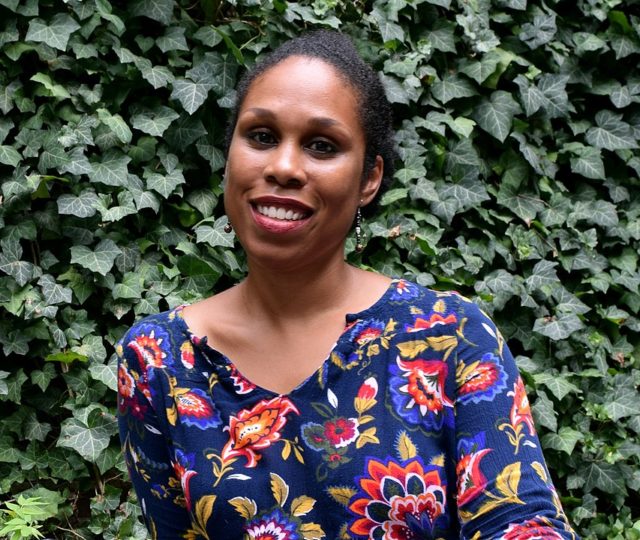Throughout the month of February, in honor Black History Month, the Medical Humanities-BMJ blog is proud to feature distinguished Black individuals who have made outstanding contributions to medicine and medical humanities.
By Brandy Schillace, Medical Humanities-BMJ EIC

Here at Medical Humanities, we have been very lucky to have hosted Dr. Oni Blackstock, MD, MHS, on our podcast in the past year. Dr. Blackstock is a primary care and HIV physician and researcher. Her work focuses on HIV, sexual health, and equity. She currently provides care at Harlem Hospital’s Infectious Disease clinic. She is also a former assistant commissioner for the New York City Health Department’s Bureau of HIV were she led the city’s response to the HIV epidemic.
In a recent interview, Dr. Blackstock explained that she was inspired to practice medicine after witnessing her mother find joy and fulfillment working as a doctor in central Brooklyn. Dr. Dale Blackstock had grown up on welfare and in substantial poverty; encouraged by a professor in college she ultimately went to Harvard Medical School and became a nephrologist and geriatrician. Both Oni and her sister, Uché Blackstock, a board-certified emergency medicine physician, were moved by the way their mother joined medicine to social justice.
Throughout her career, Dr. Oni Blackstock has consistently advocated for women to be included in PrEP [Pre-exposure prophylaxis for HIV] and the Ending the HIV Epidemic (EHE) initiative. Her research has been focused on highlighting the unique medical needs of women and people of color, and she’s been treating HIV patients in the city for more than 14 years. She supports LGBTQIA+ initiatives, as well; she was awarded a CDC grant to provide outreach and support to transgender women and other vulnerable populations, engaging women at mobile syringe exchange sites and a drop-in center for women involved in sex work. Her goal: to better support marginalized populations, where care is not being provided in accessible ways.
The HIV epidemic and the COVID-19 pandemic both disproportionately affect Black communities. As death tolls and infection rates climb (even while states reopen), US COVID-19 response can look both hopeless and horrific. On the ground, health providers like Dr. Blackstock—and especially those organizations that listen to and work with at risk communities—are taking strides to stem the pandemic and mitigate its consequences. We hope you will join us in celebration of Black women like Dr. Blackstock, who continued to join health and humanity to make the world a better place. Want to hear more? Dr. Blackstock describes her response to the COVID-19 pandemic, the growth of tele-services, and her own experiences as a front-line physician in Harlem, NYC at our MH podcast, available [here].